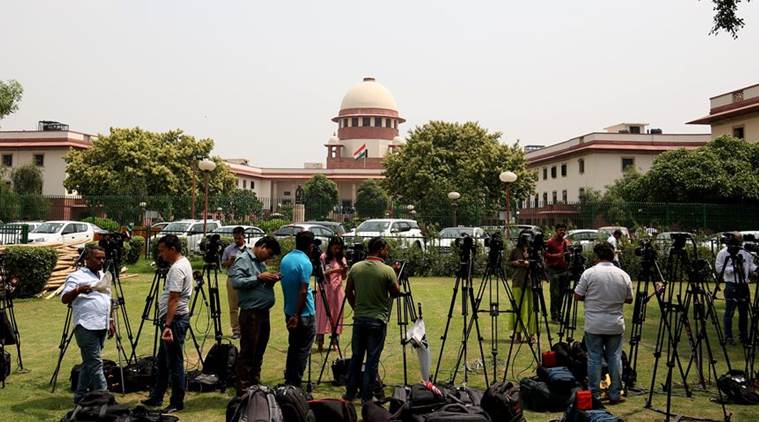 A bench, headed by Chief Justice of India Ranjan Gogoi and comprising Justices S K Kaul and K M Joseph will hear the case under “direction matters”
A bench, headed by Chief Justice of India Ranjan Gogoi and comprising Justices S K Kaul and K M Joseph will hear the case under “direction matters”
The Supreme Court will on Monday hear a clutch of petitions challenging the Allahabad High Court’s 2010 verdict which divided into three parts the disputed land on the Ram Janmabhoomi-Babri Masjid site in Ayodhya. A bench, headed by Chief Justice of India Ranjan Gogoi and comprising Justices S K Kaul and K M Joseph will hear the case under “direction matters”.
On September 27 this year, another apex court bench, headed by then CJI Dipak Misra had refused to send to a larger bench the 1994 observation that a mosque is not an integral part of Islam. The plea was raised by some appellants who wanted the court to reconsider its ruling in the M Ismail Faruqui Etc vs Union Of India And Others case, in which a Constitution Bench had observed that “a mosque is not an essential part of the practice of the religion of Islam and namaz (prayer) by Muslims can be offered anywhere, even in open”.
The petitioners had claimed that the earlier decisions in the Ayodhya case were influenced by this statement in the Ismail Faruqui verdict which came on a plea challenging the Constitutional validity of the Acquisition of Certain Area at Ayodhya Act-1993, under which 67.703 acres were acquired in Ram Janmabhoomi-Babri Masjid complex.
Turning down the plea, CJI Misra and Justice Ashok Bhushan in their majority verdict said that “we again make it clear that questionable observations made in Ismail Faruqui’s case were made in the context of land acquisition” and that “those observations were neither relevant for deciding the suits nor relevant for deciding these appeals”. The judges said that “the observation need not be read broadly to hold that a mosque can never be an essential part of the practice of the religion of Islam”.